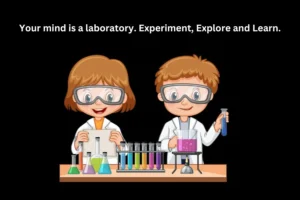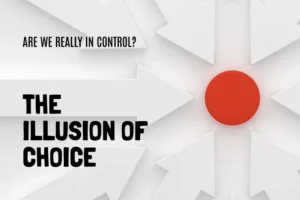If one is interested in comprehending the growth of mental health over time, they have
arrived at an apt location. This blog will probe into the history of psychology and investigate
how it has progressed.
Significant landmarks such as the coming to light of psychotherapy techniques and cognitive sciences shall be evaluated, along with examining eminent figures in psychology like Sigmund Freud’s Psychoanalytic Theory. Partaking on a voyage through time uncovers how our comprehension regarding psychological well-being has changed across eras!
Table of Contents
Origins of Psychology: From Ancient Greece to Modern Science

Tracing its origins back to ancient Greece, the history of psychology is highly engaging.
Philosophers such as Plato and Aristotle were among those who sought to explain huma
behavior via the soul or mind in this early form of psychology. Yet, it was not based on scientific
inquiry but rather philosophical investigation. It was in the 19th century that Wilhelm Wundt
became credited with being the first individual to formally create a laboratory devoted
exclusively to psychological research, thus initiating its more systematic study at that time.
Wilhelm Wundt is frequently regarded as the “father of psychology,” his efforts were dedicated
to forming methods for examining consciousness’ structure along with its function, involving
sensation, perception, emotion, and cognition.
In 1879, he established a laboratory in Leipzig, which soon gained recognition as being “the
university’s experimental center” due to its ground-breaking exploration into psychological
investigation.
History of Psychology: Wilhelm Wundt & Sigmund Freud
In addition to Wundt’s contributions, other pioneers included William James, who
developed functionalism – an approach that considered the rationale behind mental processes
evolution – and Sigmund Freud, whose psychoanalytic theory focused on understanding
unconscious mental processes that shape behavior.
The emergence of these new theories laid a foundation for further advances in modern-day psychology, such as cognitive science, which investigates how we think; developmental psychology analyzing our alterations over time; evolutionary psychology exploring human behavior from an evolutionary standpoint; social psychology, which reflects on how external factors influence us while performing specific tasks or activities; personality psychologists examining individual differences between people; clinical or counseling professionals specializing in diagnosing psychological disorders; industrial/organizational experts looking at workplace mechanics; forensic specialists collaborating with legal systems etcetera.
Development of Cognitive Sciences: From Philosophy to AI
Cognitive Sciences are the field of study that centers around how people think and
process data. It has a long past, having progressed from many centuries of philosophical inquiries into the nature of human thought. For instance, during the early 19th century Wilhelm Wundt conducted studies on awareness and perception that led to the establishment of experimental psychology. Subsequently, in that same period, Sigmund Freud’s psychoanalytic theories enormously influenced our comprehension concerning how subconscious mental procedures shape our conduct and identity.
The genesis of cognitive sciences, as it is presently known, can be attributed to the period during World War II when considerable breakthroughs in computer science, linguistics, mathematics, and engineering occurred. This period also catalyzed Artificial Intelligence (AI) since researchers sought to create machines having capabilities that had hitherto been thought
exclusive only to humans. Subsequently, this new field progressed into what we now know as
cognitive science – an area focused on investigating how human beings absorb and process data through their senses and emotions.
Moreover, besides conducting research in Artificial Intelligence (AI), Cognitive Scientists run
experiments regarding the formation of memories, problem-solving capabilities, decision-making procedures, language acquisition, processing aptitudes, and topics correlated to creativity, such as techniques for innovation or generating ideas.
Cognitive science has grown tremendously since its beginnings two centuries ago when it
combined scientific inquiry into the workings and nature of human thought with philosophical
speculation. In today’s cognitive sciences, sophisticated technologies such as Artificial
Intelligence systems are utilized with more traditional psychological research methods such as
surveys or interviews to expand our understanding regarding how we think, process information, store memories make decisions, etc. As this field continues to evolve into the future, further advancements can be expected from these fascinating areas.
Moreover, areas like sociology – which assesses how group settings shape individual decisionmaking; neuropsychology – studying brain function related to cognition; anthropology –
observing cultural influences on behavior patterns; evolutionary psychology – examining
inherited tendencies that may affect choice-making; developmental psychology – scrutinizing
changes over time in mental processes ranging from infancy through adulthood; philosophy
investigating ontological reality perception or “being”; artificial life (ALIFE) using computer
simulations for recreating living organisms’ activities/ environment they inhabit; robotics
programming robots via AI algorithms so they could interact autonomously without any external
input yet still carry out pre-programmed tasks — all form an integral part of cognizance
exploration today.
Timeline of Mental Health Treatments: Evolution and Challenges
Throughout the 1800s, mental health treatments were based on a prevailing belief that
psychological conditions stemmed from biological imbalances or physical defects. This rationale led to such remedies as lobotomies and hydrotherapy being used to rectify mental illness; however, these remedial approaches often failed to address the source of psychological issues while inflicting considerable emotional and physical harm upon those affected. By the start of the twentieth century, psychoanalytic theory had become widely accepted as a viable treatment for different psychological disturbances.
This form of therapy centered on understanding unconscious struggles through interpreting
dreams, free association, and psychoanalysis. Although psychoanalytic theory offered some
comprehension regarding the origins of specific mental issues, it typically did not prove to be
efficacious in treating them. Another technique that gained popularity during this era was
behavioral therapy, which successfully managed psychological ailments like phobias or
obsessive-compulsive disorder (OCD). This treatment relied on reinforcement techniques such as rewards or punishments to encourage desirable behaviors and ideas.
Throughout the 1960s, traditional treatments for psychological disorders were replaced by more extensive approaches such as cognitive-behavioral therapy (CBT) and family counseling. These therapies primarily aimed to identify solutions that could facilitate underlying symptoms instead of exclusively concentrating on behavioral patterns associated with every sign independently. Patients have imparted coping skills that enabled them to control their feelings while tackling whatever pertinent root causes had been identified about their mental distress. CBT has become highly recognized due to its capability when dealing with issues like depression and anxiety without having a dependency only upon drugs; however, many people still cannot attain satisfactory healthcare because they lack access to the essential resources needed for successful treatment results.
The Emergence of Psychotherapy Techniques: Past and Present

The history of Psychology is a lengthy and multifaceted discipline that can be traced back
to the ancient Greeks. A significant contribution that has been made to modern psychology is the evolution of psychotherapy techniques. Psychotherapy, also called talk therapy, involves
conversations between an individual therapist and a patient or among several patients guided by professional therapists for purposes such as diagnosing and treating mental health disorders. Although this type of treatment has been implemented in various forms over extended periods, its contemporary structure emerged only towards the end of the 19th century.
1859 French neurologist Jean-Martin Charcot set up La Salpêtrière Hospital in Paris as a
research center for hysteria and other psychological disorders. Charcot successfully used
hypnosis to treat his patients at the time of its conception. Subsequently, in 1895 Sigmund Freud created his psychoanalytic approach based on Charcot’s utilization of hypnosis. He postulated that unconscious conflicts were at the core of numerous psychological issues and endeavored to discover them through meaningful conversations with those under his care during therapy sessions.
Sigmund Freud’s work had a profoundly far-reaching impact on modern psychology, laying the
groundwork for future psychologists to generate and implement new strategies for addressing
mental health issues.
One such approach is cognitive behavioral therapy, which was developed by American
psychologist Aaron Beck in 1976; interpersonal psychotherapy (IPT) by American psychiatrist
Gerald Klerman in 1984; dialectical behavior therapy (DBT) crafted by Marsha Linehan from
America in 1993; acceptance commitment therapies (ACT), introduced by Canadian
psychologists Steven Hayes & Kirk Strosahl in 1999; schema-focused treatment plans
established jointly by Dutch psychologist Arnoud Arntz & German colleague Ernst Trossmannin
2003; emotion-focused therapies(EFT ) formulated with assistance from Canadian Psychologist
Leslie Greenberg & scholars at the York University Psychology Department 2004; mindfulnessbased cognitive interventions build upon insights provided British Psychiatrist Mark Williams and Colleagues made it mainstream 2006; and finally, compassion-based therapies were introduced by Paul Gilbert& Chris Ironsof Britain 2011.
All these approaches have been devised to help individuals better comprehend their thoughts or feelings, facilitating healthier decisions when confronted with testing scenarios. It speaks firmly to how much progress psychotherapeutic techniques have achieved since Freud’s era.However, the journey toward further understanding is not yet finished; many areas within mental health still await closer study.
Exploring Psychoanalytic Theory: Insights into the Human Mind
Psychoanalytic theory, proposed by Sigmund Freud in the early twentieth century, has
become one of the most prominent models in psychology. This model holds that our behavior is
caused by unconscious processes such as wishes and feelings, which are essentially not
accessible to us. It suggests that our conscious behaviors can be driven or prompted by impulses from these interior states without any awareness on our part.
To explore this concept further, Freud developed a technique known as “psychoanalysis,”
through which he believed we could gain greater insight into those inner workings influencing
external actions. The Oedipus Complex”), the use of psychoanalytic theory to uncover and work through an individual’s unresolved issues from childhood is still a viable tool for gaining insight into current behavior patterns. Moreover, this approach continues to help understand universal psychological phenomena such as dreams and mental illness by exploring the role these may play in terms of repressed feelings or traumas within an individual’s psyche.
History of Psychology: Pioneers in Psychology: Influential Figures in the Field
For centuries, psychology has been under the scope of various influential thinkers.
Pioneers in this area, such as Wilhelm Wundt, William James, Sigmund Freud, John B. Watson,
and B.F Skinner, have made essential contributions to its growth and laid down an array of
principles that define it today.
Wilhelm Wundt is commonly referred to as the founding father of modern psychology due to his
pioneering endeavor, wherein he set up a laboratory exclusively devoted to psychological studies at Leipzig University in Germany back in 1879.
William James was an American psychologist who made notable contributions to the field
during his era (the late 1800s). He invested much of his efforts in comprehending the
mechanisms associated with conscious awareness and investigating how people experience
sensations like pleasure and pain and how our minds process varying forms of stimuli.
Furthermore, he explored several broadly relevant areas today, such as memory, perception,
learning, emotion, etc.

His aim was also to investigate comparatively neglected topics at the time, including
consciousness, free will, and religious belief systems, which have since become crucial
components of psychological research.
John B Watson was an American psychologist who served as a predecessor to Sigmund Freud, coming after William James. He is credited with writing one of the earliest texts on psychology entitled “The Principles of Psychology,” which had a significant influence on generations of psychologists after him; among them being Sigmund Freud himself, whose psychoanalytic theories about personality development and psychopathology (mental illness) were significantly affected by Watson’s work. He is most renowned for his strong support of behaviorism, a school of thought in psychology that focuses on how observable behaviors are developed through conditioning instead of analyzing unconscious intentions or inner psychological states (as recommended by psychoanalysts).
B F Skinner was another significant proponent of behaviorism during the mid-1900s, although he had diverging views from those proposed by Watson regarding reinforcement schedules.
He suggested rewarding behaviors after certain intervals as compared with continuously reinforcing them every time they occur – which conforms to Watson’s theory about classical conditioning and remains applicable today whenever debates crop up concerning animal training strategies used at zoos or pet obedience techniques employed within households globally.
Humanistic Approach to Psychological Studies: Embracing Individual Potential
This school of thought instead posits that people have unique potentials, and egostrengthening techniques help them achieve their full potential. The Humanistic Approach to Psychology originated in the 1950s and 1960s and is a perspective that accentuates the significance of individual experience, personal progressions, and selfrealization. It stands in contradistinction to more traditional psychoanalytic theories that concentrate on hidden motivations as well as behavioral conditioning.
Believers in this approach believe that humans are fundamentally benevolent by nature with control over their fate; thus, they decline notions such as “the Id” or Sigmund Freud’s model involving three mental structures suggesting our subconscious impulses direct us. Rather than seeking mechanisms for controlling behavior through psychoanalysis, this method proposes using strategies designed to bolster one’s sense of self-worth toward accomplishing each person’s most outstanding capabilities.
The Humanistic approach to Psychology was pioneered by two significant Psychologists,
Abraham Maslow and Carl Rogers. Maslow formulated his renowned Hierarchy of Needs, which
states that individuals must gratify particular fundamental requirements before achieving higher
levels of self-actualization or personal fulfillment.
In contrast, Roger’s Person-Centered Theory (PCT) emphasized unconditional positive regard for people and compassion toward them to induce change within the individual. This practice is
usually called Self- Determination Theory (SDT).
The ideas of two renowned thinkers gave rise to an array of other influential theories, such as
Erich Fromm’s Social Character Theory, Rollo May’s Existential Psychology, Viktor Frankl’s
Logotherapy, Fritz Perls’ Gestalt Therapy, and Paul Goodman’s Communities Psychology.
Moreover, Kurt Goldstein developed Organismic Psychology, while modern-day therapies like
Mindfulness-based therapy have shed light on how presence in a moment can help lead more
gratified lives with more significant objectives.
In addition, various contemporary philosophical movements rely heavily upon Humanistic
psychology theory for their ethical guidelines about life decisions. All these components together comprise the Humanistic Approach that has considerably influenced current psychological practice over recent decades by offering an alternative perspective to conventional psychoanalytic approaches. It provides clinicians with practical methods for comprehending motivation, mental health issues; relationships; work-related matters; among others, while also delivering respective solutions grown out of freedom, duty & growth potential found within every single person.
Behavioural Psychology and Modern Research: Understanding Human Behaviour
Behavioural Psychology has had a profound impact on modern research in the realm of
psychology. Through the ages, numerous methods have been utilized to interpret and elucidate
human behavior. This technique has gone through various stages of progress, commencing with Ivan Pavlov’s and John Watson’s classical conditioning studies conducted during the 1920s. Classical conditioning was a practical approach for studying primary animal conduct; however, only in B.F Skinner formulated his Operant Conditioning Theory in 1938 did Behavioural Psychology become primarily acknowledged as a legitimate method for comprehending human behavior.
The work of Skinner on operant conditioning, which focused on how reinforcement could affect
behavior over time and furthered our comprehension of learning as a process rather than an
event, inspired numerous researchers to employ this approach when studying more complex
types of human behavior, such as problem-solving and decision-making. Furthermore, cognitive processes like memory and attention began to include principles from operant conditioning in their studies, thus providing greater insight into how these mental activities contribute to everyday behaviors.
In recent decades another factor aiding research is a technology that enabled scientists to study highly intricate forms of conduct at both the micro-level and macro-level using tools including functional magnetic resonance imaging (fMRI). The utilization of behavioral rules – for instance, reinforcement, extinction, shaping, and punishment – has also become increasingly common throughout all aspects of psychological exploration ranging from clinical investigations assessing treatments meant for anxiety or depression through educational research examining productive teaching methods or classroom interventions targeted towards challenging students. Therefore, Behavioural Psychology continues to be one of the most critical influences on modern-day psychological inquiry.
Neuroscience and Psychology: Bridging the Mind-Brain Connection
The fields of Neuroscience and Psychology have had a lengthy record together. Their
collaboration intensified in the 1950s and 1960s when researchers dedicated themselves to
learning how the brain works and influences behavior. This partnership was pivotal for founding
modern neuroscience during the 1970s, with scientists beginning to use advanced equipment,
such as neural imaging tactics, to study brain function. Thanks to this new development, there
has been an increment in knowledge surrounding physical architecture and operations of human brains, not forgetting their effect on psychological behavior.
The complexity of the relationship between neuroscience and psychology is beneficial to both.
Neuroscientists can bring insight into our anatomical structures, whereas psychologists study this information to devise theories that explain why human behavior or emotional response occurs under certain conditions. For example, neuroscientists can map out areas within the brain about emotion, memory retention, and learning; with such knowledge, psychologists may utilize it to decipher why a person might act or feel a particular way amidst specific contexts.
An instance where neuroscience has been particularly beneficial to psychology is research
centered around mental illnesses such as depression and anxiety.
By utilizing imaging techniques like functional magnetic resonance imaging (fMRI) or positron
emission tomography (PET), researchers can gain an understanding of which areas of the brain
are impacted by these disorders, with potential disparities between individuals, as well as explore possible remedies that focus on those particular sections in the brain linked to signs of
psychological illness. This sort of analysis may bring about augmented treatments for mental
diseases and give a more profound comprehension of their origins to establish improved
preventive measures in ensuing examinations.
Newer Trends in Psychology: Emotional Intelligence and Positive Psychology
Psychology has been present for centuries, yet it was not until the late 1800s that it began
to be studied in an empirically sound manner. In the initial days of psychology, analysts were
chiefly preoccupied with behavior and psychological states. With time passing by, however,
psychologists have created novel methods of considering the mind and its corresponding action and examining various disparate psychologic inquiries. One emergent trend in modern-day psychology is centered around emotional intelligence; this specializes in comprehending how emotions alter people’s thoughts plus behaviors.
Another current development in psychology is Positive Psychology, which seeks to aid
individuals who strive for a more productive and meaningful life by focusing on their assets
instead of deficiencies or shortcomings. This branch emphasizes implementing positive
strategies so that people can take full advantage of opportunities to experience joy and
satisfaction.
Moreover, Neuroscientists have become far more instrumental when studying psychological
issues such as mental illness or memory formation over recent years. By analyzing neurons
within specific brain regions associated with character traits like aggression or capacity for
emotion regulation, they seek to understand how structures within our brains influence behavior
patterns.
Conclusion
In conclusion, the history of psychology is an intriguing expedition through many advancements
in mental health and cognitive sciences, psychotherapy techniques, and psychoanalytic theory. It is remarkable to observe how much progress has been made over a brief period, and it stimulates contemplation regarding what lies ahead for psychology. As new technologies and treatments are continually being developed, there can be no doubt that psychology will advance its mission to assist people in better comprehending themselves and understanding others more effectively.
Join us:
Have you ever desired to stay abreast of recent research and read more articles? It is your
opportunity! Read More Articles allows one to keep track of all significant information. From
current affairs to expert opinions, something new can be discovered daily. In addition, utilizing
our effortless platform makes reading a breeze; thus, do not delay any longer – commence
exploring today and use everything Read More Articles has available!













